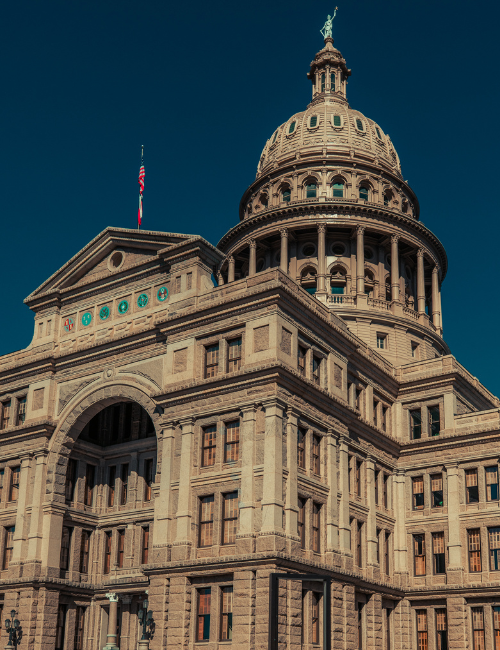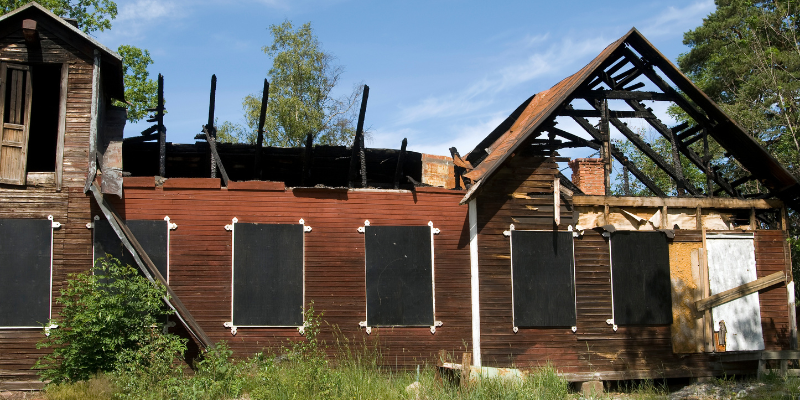
A house fire is overwhelming, but recovery starts with the proper steps. Fast House Buyers Texas offers clear guidance to help Texas families confidently move forward.
Emergency Contacts and Hotlines for Fire Emergencies in Texas
After a house fire in Texas, residents need to know the emergency contacts and hotlines for rapid assistance. The Texas Division of Emergency Management can advise you on local disaster relief activities and link you with critical resources suited to your needs.
Reaching out to the American Red Cross is also critical, as they provide emergency housing, food, and support to individuals affected by fire. Contacting your local fire department can guide you through the following procedures for property security and safety.
To properly navigate insurance claims following a fire, homeowners should contact the Texas Department of Insurance hotline. The Disaster Distress Helpline provides free counseling for emotional help during this difficult time and may connect you with mental health options in Texas.
Having these contacts helps homeowners quickly obtain help and information during a house fire.
Essential Steps to Take After a House Fire in Texas
In the aftermath of a house fire in Texas, householders must take immediate and critical measures to ensure their safety and initiate recovery. Initially, it is imperative to notify local authorities and emergency services of the incident and obtain clearance to re-enter the property once it is deemed safe.
Document the damage with detailed notes and photographs to support your insurance claim with your provider. The claims process can be initiated by promptly contacting your insurance company, allowing you to access the necessary funds for repairs or temporary lodging.
Securing the property by covering damaged areas or binding up windows to prevent additional damage from vandalism or weather conditions is crucial. Professional restoration services that specialize in fire damage cleanup are also a viable option for Texas householders, as these professionals can evaluate structural integrity, eliminate smoke odors, and remove soot.
Furthermore, salvaging undamaged property necessitates meticulous cleansing and deodorization to guarantee its safety for re-use. Engaging with community resources, such as local charities or support organizations, can offer practical assistance and emotional support during this difficult period.
Understanding Home Insurance Claims Post-fire in Texas
When a house fire shakes your world, knowing how to work with your home insurance is more important than ever. First things first: call your insurance company right away. The sooner you report the loss, the sooner they start the claims clock, and that can make a big difference in what gets covered.
Next, pull out your policy and read the fine print about fire damage. You need to know whether your coverage pays the full replacement cost or the actual cash value because that choice will change how much money you get back for repairs and lost items.
Take clear photos of every damaged room and list everything that was ruined. Texas rules might set deadlines for submitting documents, so having this proof ready keeps your claim on track and avoids headaches later.
Many homeowners find it helpful to hire a public adjuster who knows the ins and outs of insurance talk. Keeping notes of every call, email, and letter with your insurer creates a complete paper trail that protects you if questions arise during the settlement.
Filing an Insurance Claim for Smoke Damage: A Guide for Texans
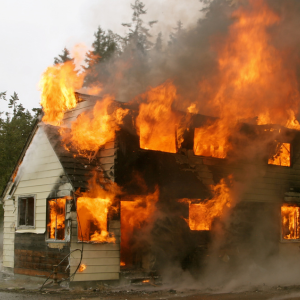
If you file an insurance claim for smoke damage after a house fire in Texas, you need to follow a few essential procedures to ensure you get the money you deserve. First, it’s very important to carefully document all the smoke damage by taking detailed pictures and videos of the damaged locations as soon as it’s safe.
Call your insurance company right away to report the occurrence. Make sure to give them a complete list of the damaged items and any proof you have. It’s important to know what your policy covers, so read your homeowner’s insurance policy carefully to determine what kinds of smoke damage it covers.
Texans should also keep track of all conversations with their insurance company and consider hiring a public adjuster if they need help with Texas’s complicated claims processes. Submitting all of the necessary paperwork as soon as possible will speed up the claim process and increase the likelihood of a good result.
Promptly notify your insurer of smoke damage and document the damage with photos and receipts. This documentation is crucial if you sell your home for cash in Texas. An adjuster may inspect the property before processing your claim.
Evaluating Structural Integrity Post-fire: What Texans Need to Know
Assessing the structural integrity of your residence following a house fire in Texas is an essential step in the recovery process. Homeowners must prioritize this evaluation to guarantee safety and ascertain the level of damage inflicted by the fire.
Consulting qualified professionals specializing in post-fire evaluations, such as structural engineers or building inspectors knowledgeable about local regulations and construction codes, is crucial. These specialists will meticulously examine critical components such as the foundation, load-bearing walls, beams, and roof structure for any indications of deterioration caused by elevated temperatures or water damage resulting from firefighting activities.
Texans must be vigilant regarding smoke and soot that may have infiltrated materials, potentially compromising their structural integrity over time. Comprehending these factors aids in averting additional harm and guarantees the early identification of requisite repairs or reinforcements.
By implementing these measures, Texas homeowners can make informed choices regarding reconstruction initiatives and strive to restore their residences safely and effectively.
Salvaging Personal Belongings After a House Fire: Tips for Texans
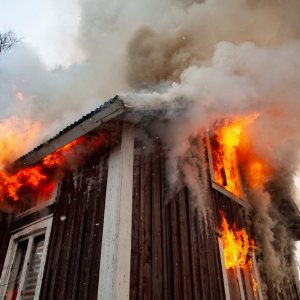
After a house fire in Texas, saving personal possessions can be a daunting yet necessary step toward recovery. Before approaching the property, Texans should obtain official approval from local authorities to assure their safety.
Once it’s safe, donning protective gear such as masks and gloves is essential to avoid exposure to harmful compounds. Prioritizing sentimental objects like family heirlooms, photographs, and key papers can help preserve precious memories.
It is best to carefully inspect each item for smoke or water damage before deciding if it can be repaired or requires expert cleaning services. In Texas, where humidity levels can compound damage, employing dehumidifiers and fans reduces moisture and prevents additional degradation of goods.
Working with seasoned restoration contractors who understand the specific problems of fire recovery in Texas can be quite helpful in rescuing valued items promptly and safely.
How to Secure Temporary Housing Following a Fire in Texas
After a house fire in Texas, finding a safe place to stay is usually the first thing displaced families think about. Call your insurance company immediately to learn how much money is set aside for extra living costs, which typically cover hotel bills or a rented apartment while repairs happen.
Most home policies pay for short-term lodging until the house is ready again, so keep receipts in one folder. At the same time, contact local groups like the American Red Cross or the Salvation Army; they can give you a bed, a meal, and tips on where to look for safe temporary housing nearby.
You should also check with friends, churches, or neighborhood networks because someone may have a spare room or emergency shelter already stocked with supplies. Websites that list short-term rentals are helpful, too, but make sure the place has the bedrooms, kitchen, and budget you need before booking.
Moving quickly is essential, but so is reading the fine print and comparing a few options to ensure the spot you pick is clean, secure, and feels like home while you recover.
After a fire in Texas, contact relief agencies and your insurance for temporary housing. At Fast House Buyers Texas, we buy homes in Harlingen and nearby cities to help you progress.
The Role of Fire Damage Restoration Services in Texas
Fire damage restoration services are a lifeline for Texas families who have endured the heartbreak of a house fire. From erasing stubborn smoke smells to scrubbing soot and fixing burnt beams, these skilled teams tackle every messy detail that flames leave behind.
Because Texas has its building codes and seasonal quirks, local pros know exactly what rules to follow while bringing a house back to life. Using heavy-duty fans, thermal imaging, and special cleaners, they slow down more damage and get homeowners back in sooner.
Many teams also guide clients through the insurance maze, keeping up-to-date notes and photos that the adjuster will want to see. With their steady hands on the repairs, families can spend more energy healing themselves, knowing their home is in safe, expert care, while also selling your house as-is can offer a quicker, less stressful path forward.
The Process of Rebuilding Your Home After a Fire in Texas
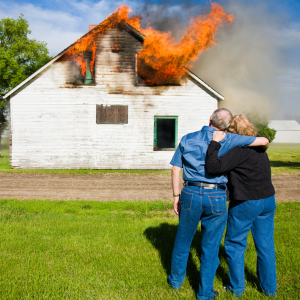
Rebuilding your Texas home after a fire is no small task, but taking the process step by step helps keep everything on track. Start by bringing in certified inspectors who can give you a clear picture of the flames’ damage and whether the walls, roof, and foundation are safe.
Once the assessment is done, choose a licensed contractor with experience in fire recovery work. This person will know how to pull permits, follow local building codes, and avoid costly slowdowns later. The next move is to sit down with your insurance adjuster; keeping detailed receipts and photos will make it easier for them to cut checks that cover new drywall, wiring, and anything else you need.
Create a written plan with those teams on board that spells out construction phases, estimated costs, and a rough timeline. Safety should remain the top priority, so replace or repair every smoke alarm, carbon monoxide detector, and fire sprinkler head before moving back in.
Think about upgrading to non-combustible roofing or cement-board siding; these Texas-approved materials might cost a little extra now, but they can save you big if another blaze threatens. Finally, review state programs, low-interest loans, or FEMA grants that can ease the financial sting while you turn blueprints back into rooms you love.
Legal Considerations for Homeowners Affected by Fires in Texas
After your home suffers a fire, especially in Texas heat, you have a long list of legal and practical steps ahead. First, pull out your homeowner’s insurance policy and see what it says about fire damage.
You want a clear picture of how much money the policy sets aside for repairing the house, replacing personal belongings, and covering other living expenses while work is done. Report the fire to the insurer as soon as possible, and keep a careful record of every call, email, and claim form you send or receive.
Bringing in an attorney who knows Texas property law can save you headaches later, especially if the insurance company questions any part of your claim. You should also brush up on local building codes before repairs begin; following those rules keeps workers safe, avoids fines, and makes sure your reinvestment in the home is sound.
Finally, note that you may be liable for damage if the fire spreads to a neighbor’s yard or structure, so having liability coverage and clear boundaries can shield you from surprise lawsuits.
Navigating Financial Assistance Programs for Fire Recovery in Texas
Recovering from a house fire in Texas can be tough, but knowing where to find and how to use financial help makes the recovery much smoother. The first step after the smoke clears is to call your insurance company and review your fire damage policy. Most homeowner plans include this coverage, but every policy is slightly different.
Take time to snap clear photos and write down precisely what was lost or damaged. This proof will back up your claim and help the adjuster move quickly.
Aside from insurance money, several state and federal programs stand ready to help. FEMA often steps in after significant disasters, offering grants that homeowners cannot repay. The Small Business Administration, usually thought of as a business lender, also provides low-interest disaster loans to individuals so they can finance repairs or rebuild.
On the state level, the Texas Division of Emergency Management may roll out resources that fit your local needs after the fire passes. Community groups and non-profits across Texas also step up, giving small grants or direct aid based on your situation.
What to Do Immediately After a House Fire?
In the immediate aftermath of a house fire in Texas, homeowners must take the necessary measures to ensure their safety and initiate recovery. Initially, it is imperative to guarantee the safety and well-being of all family members and creatures, as personal safety is the primary concern.
Contact the local fire department to confirm that the fire has been entirely extinguished after all individuals have evacuated the area. Subsequently, contact your insurance provider promptly to report the incident and file a claim. Comprehensive damage documentation, such as photographs or videos, can considerably facilitate this process.
Additionally, it is crucial to protect your property by boarding up any damaged windows or entrances to prevent additional damage or theft. Suppose you cannot remain home due to safety concerns or structural damage. In that case, it is advisable to seek temporary lodging, such as staying with friends or family or utilizing local disaster relief resources.
Furthermore, comprehensive documents on all expenses associated with displacement and repairs must be maintained for insurance purposes. After experiencing a house fire in Texas, it is essential to take these initial actions to navigate the challenging road ahead.
After a house fire, focus on safety. Ensure everyone is out and wait for the authorities to declare the area safe. Contact your insurance provider, arrange temporary housing, and document any damage if it’s secure. For help, Contact Us at Fast House Buyers Texas.
What Happens If My House Burns Down and I Don’t Have Insurance?
If your house burns down in Texas and you don’t have insurance, getting back on your feet can be hard, but it’s not impossible. Without homeowners insurance, you’ll have to pay for all the repairs or rebuild yourself, which can be a lot of money.
But there are important things you can do to start the recovery process. First, contact local disaster relief groups like FEMA or the American Red Cross. They may be able to help you find temporary lodging and money for basic necessities.
It’s also important to contact Texas community services and non-profits that help those who have lost their homes in fires but don’t have insurance. When you need help or a loan, taking pictures of all the damage and preserving precise records will be very important.
If you’ve had a house fire and don’t have insurance, you might want to look into personal loans or grants only for people like you. Also, go to a financial expert to find out about all your options and make a plan for how to restore your life after this terrible catastrophe.
Not having insurance makes recovery harder, but getting help from your community and using available resources might help you start over after a house fire in Texas.
How Long to Air Out a House After a Fire?
One of the most critical measures toward recovery after a house fire in Texas is adequately ventilating the affected area. The time required to ventilate a house following a fire effectively varies based on various factors, including the level of smoke damage and the size of the structure.
Typically, householders should begin by opening all windows and doors to allow airflow, and then utilize industrial fans or air purifiers to speed up the process. Airing out a house can usually take anywhere from 24 hours to many weeks.
To restore indoor air quality, completely eliminating any leftover smoke odors and hazardous particles is critical. Consulting with experienced restoration services in Texas can provide advice targeted to your specific circumstances, assisting you in determining the best timeframe for regaining safe living conditions after a fire.
Remember that patience and thoroughness are essential when dealing with fire-related damage, as insufficient ventilation may pose ongoing health concerns for your home.
Selling your home? Fast House Buyers Texas offers quick, as-is sales with fair cash offers. There are no repairs or hidden fees, just a simple, efficient process from start to finish. Contact us at (956) 204-3333 today for a free, no-obligation offer.
| FIRE DAMAGED | INSURANCE AGENT | INSURANCE AGENCY | INSURANCE CARRIER | THE RED CROSS | HOMEOWNERS’ INSURANCE |
| HOMEOWNER’S INSURANCE | LAWYER | CLOTHES | EMOTIONS | MOTELS | LEGAL ADVICE |
| MOLD REMEDIATION | HOTELS | EMERGENCY RESPONSE | DEBRIS | CHILDREN | |
| 9-1-1 | YOUR INSURANCE COMPANY TO |
Helpful Texas Blog Articles
- Guide To Leaving Your Texas Home Vacant
- How to Sell Jointly Owned Property in Texas
- Paperwork Needed to Sell a House by Owner in Texas
- Selling a House with Code Violations in Texas
- Understanding Realtor Fees In Texas
- Can You Back Out Of A Real Estate Contract In Texas?
- Selling Your House As-is In Texas
- Selling A Foreclosed Home In Texas
- Selling Your Texas Home By Owner
- Understanding Appraisal Required Repairs In Texas
- Texas Estate Administrators Can Legally Sell Real Estate
